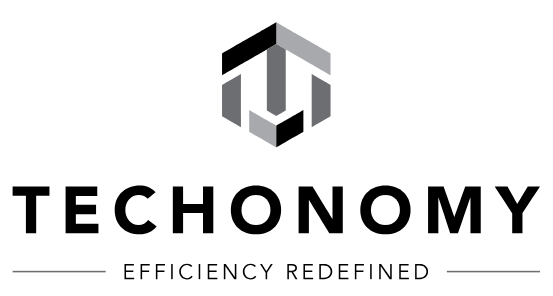
They are typically equipped with advanced degrees and certifications, such as CPA (Certified Public Accountant), which full charge bookkeepers don’t necessarily hold. It involves comparing an organization’s financial records with the corresponding bank statements to identify and resolve discrepancies. By ensuring the accuracy of financial data, full-charge bookkeepers provide business owners and management with a clear view of the organization’s financial position and cash flow.
- It offers flexibility, accessibility, and real-time financial data, making it an attractive option for many businesses.
- With additional training, a full charge bookkeeper could be promoted into the controller position.
- At the same time, larger businesses, or those with more complex financial needs, might require the advanced expertise of an accountant.
- They have a deep understanding of accounting principles and can maintain meticulous records of your business transactions.
- With the full range of accounting services Allman & Allman APAC provides, we are equipped with the expertise for which you may be in need.
Industry Certifications and Training Courses
However, as they are not certified public accountants, the company would often need to consult a certified public accountant for external audits and tax returns. Knowing what is included in full charge bookkeeping services makes you aware that a degree, skills, and certifications sometimes https://x.com/BooksTimeInc aren’t enough. Due to the higher level of responsibilities that FC bookkeepers have, some employers insist that candidates have prior bookkeeping and accounting experience. Larger companies sometimes have the assistance of an outside certified public accountant to review and audit more complicated financial statements and tax returns.

Industry Trends for Full Charge Bookkeepers

The full-charge bookkeeper job description goes beyond the usual responsibilities that typical bookkeepers have. Like regular bookkeepers, they keep records of finances, bank transactions, income and expenses, create monthly or weekly statements, and run payroll and timesheets. More complicated roles tend to require more training, so you’ll need to source candidates carefully. Some companies find their own in-house bookkeepers can fill the role with a little extra training.
Differences Between a Regular Bookkeeper and a Full-Charge Bookkeeper

Many companies, especially small and medium-sized enterprises (SMEs), are recognizing the benefits of delegating their bookkeeping tasks to external professionals. Proficiency in accounting software is a must-have skill for any full charge bookkeeper. With the advancement of technology, most businesses now rely on accounting software to https://www.bookstime.com/articles/what-is-a-voided-check manage their financial transactions and records. As a full charge bookkeeper, you need to be well-versed in popular accounting software programs such as QuickBooks, Xero, or Sage. Reconciling bank statements is another important duty of a full charge bookkeeper. This process involves comparing the company’s recorded transactions with the bank’s records to ensure accuracy and identify any discrepancies.
- Proper time management allows you to allocate the right amount of time to each task, ensuring that you can deliver accurate and timely financial information to the business.
- An in-house bookkeeper is great for businesses needing constant, hands-on financial management.
- During this process, they may also adjust journal entries to correct any discrepancies they find.
- When you decide to hire a full charge bookkeeper, it’s important to know what to look for.
- The full charge bookkeeper position is most commonly found in smaller organizations where there is no need for a controller, and which has relatively uncomplicated accounting transactions.
- To become a full-charge bookkeeper, first obtain your high school diploma before seeking relevant accounting or finance education.
- Ultimately, understanding the difference between a bookkeeper and a full charge bookkeeper can be crucial in deciding how to manage a business’s finances effectively.
- Depending on the level of education, years of experience, certifications, and additional skills, the full charge bookkeeping salary in the United States ranges from $37,770 to $47,250.
- Many businesses find value in outsourcing bookkeeping services, particularly when it comes to employing full charge bookkeepers.
- They are often engaged by growing businesses that cannot handle all the financial tasks on their own.
An in-house bookkeeper is great for businesses needing constant, hands-on financial management. Outsourcing is better for those wanting flexibility, expertise, and to save money. full charge bookkeeper meaning Consider your priorities, budget, and what you value most to choose the best option for your business. Outsourcing bookkeeping services has become a popular option for businesses of all sizes.
Junior Accountant Job Description

They’re ideal for businesses that are growing, but not yet ready to employ someone so specialized. If desired, we would be pleased to perform the requisite research and provide you with a detailed written analysis. Such an engagement may be the subject of a separate engagement letter that would define the scope and limits of the desired consultation services.
- In the US, the American Institute of Professional Bookkeepers or the National Association of Certified Public Bookkeepers provide such designations.
- To ensure success as a full charge bookkeeper, you should have advanced knowledge of bookkeeping and accounting systems, excellent project management skills, and a good eye for detail.
- In this scenario, your FCB should be managing the relationship with the specialist on your behalf.
- With their expertise, they can streamline your financial processes, identify cost-saving opportunities, and help you make informed decisions to improve your bottom line.
- Their expertise and skills make them highly valuable to businesses, which often results in better compensation packages.
Either way, a good first step in the process is to secure a provider of outsourced accounting and bookkeeping services to help fill these demands. By leveraging the expertise and comprehensive services of full charge bookkeepers, SMBs can effectively manage their financial operations, mitigate risks, and position themselves for long-term growth and success. As a full charge bookkeeper, there are several essential skills that you need to possess in order to effectively perform your duties. These not only contribute to your success in the role but also ensure that you can provide accurate financial information and support to the business you work for.
